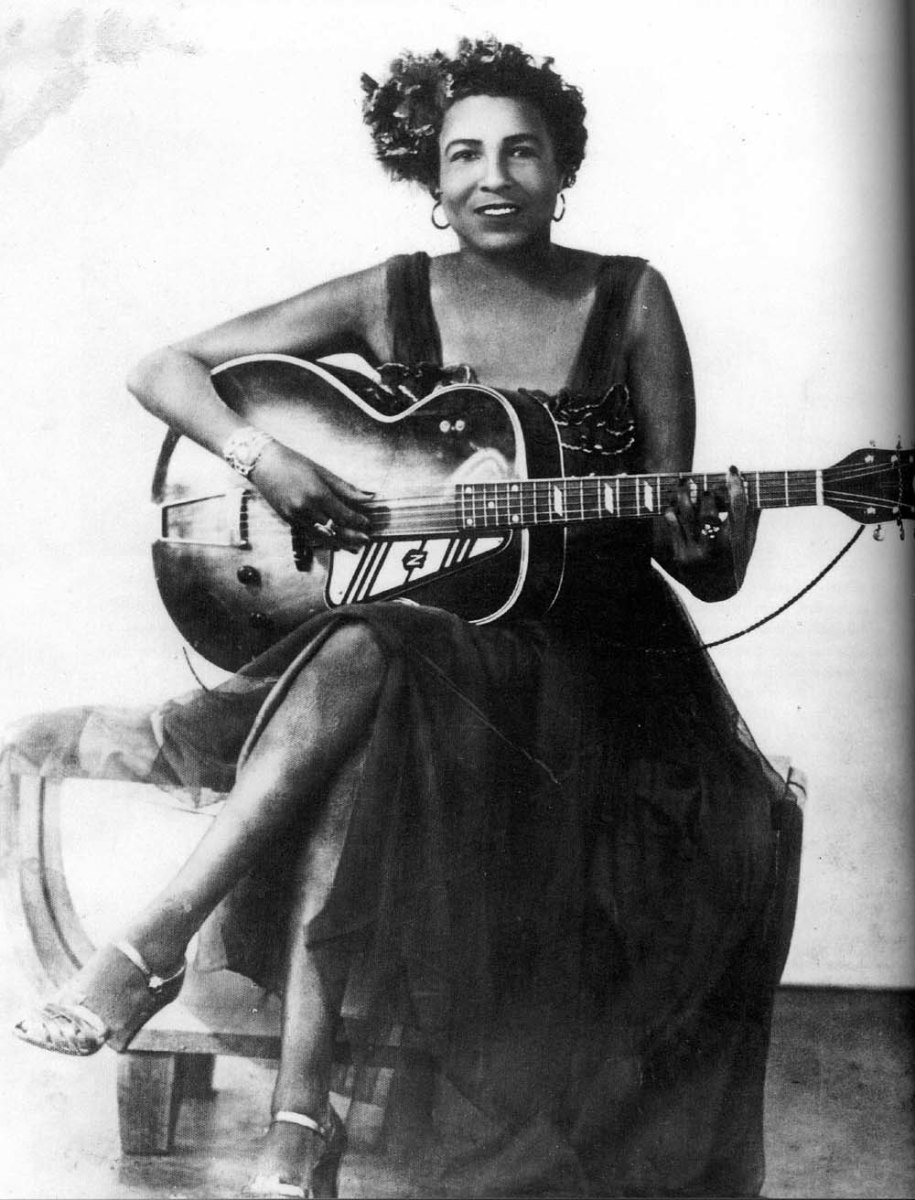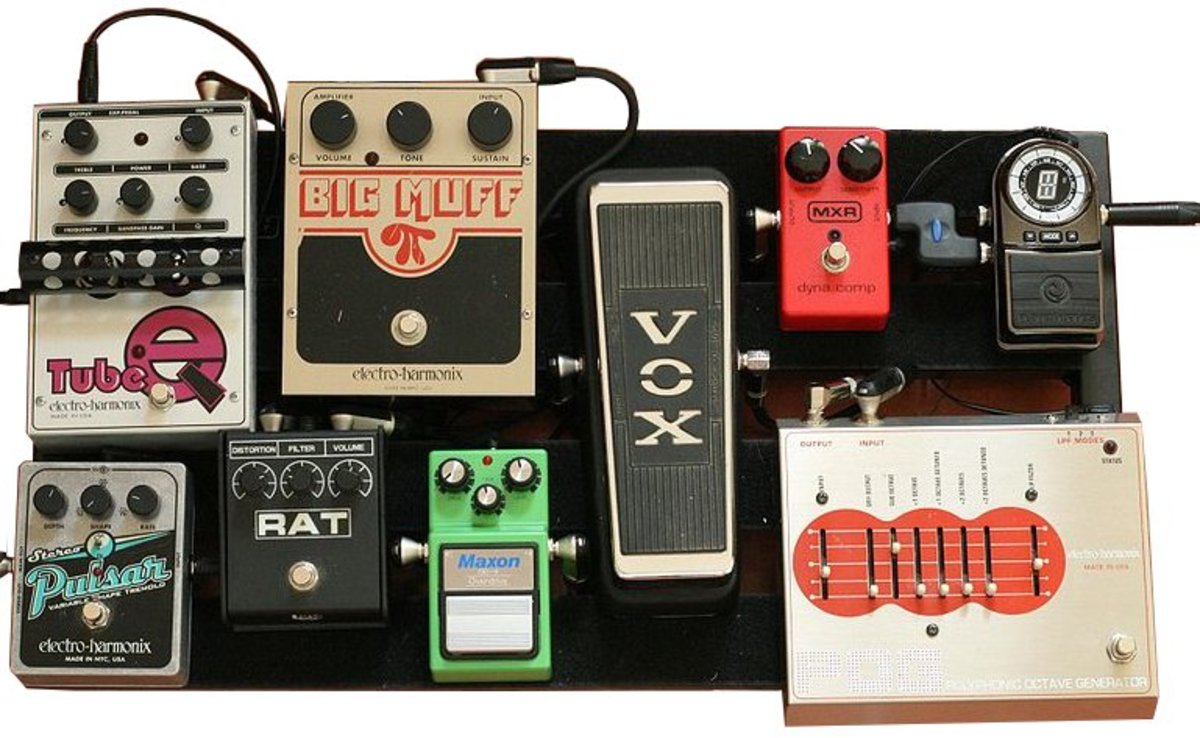Epiphone Les Paul Standard
The Epiphone Les Paul Standard Electric Guitar is the first choice of many guitarists who aspire towards a Gibson, but can't afford one. Whereas a Gibson Les Paul will set you back around $2,500, the Epiphone Les Paul Standard can be found for less than $500 from some dealers. This is a huge difference in price. Why does one cost five times as much as the other? Is there such a massive difference in quality? Or is the Epiphone a worthwhile investment?
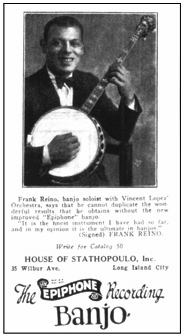
Epiphone Guitars - A Brief History
The Epiphone family business was originally founded by Anastasios Stathopoulo. He was a luthier and the son of a Greek timber merchant, who had been hand crafting lutes, violins and other traditional stringed instruments for thirty years before he migrated to New York with his family in 1903. His eldest son Epi (short for Epimanondas) took over the family business on his death in 1915.
As well as being a luthier and a savvy businessman, Epi was also a musician. He changed the name of the company to Epiphone and, with his finger on the pulse of what was happening in the music industry at the time, concentrated on manufacturing banjos during the 1920s and then guitars during the 1930s.
It was around this time that the real rivalry started between Epiphone and Gibson. Epiphone guitars were considered some of the best in the world at that time, endorsed by many famous players, including Les Paul himself.
Following the death of Epi in 1945, the company was taken over by his two brothers, but unfortunately they had neither Epi's talent nor his insight, so that by the 1950s the company was in real trouble. Gibson however were flourishing to such an extent that in 1957, they were able to buy out their rivals for just $20,000.
Gibson relaunched the Epiphone product line in 1958 as a lower-cost alternative to its own upmarket models. The manufacturing of Epiphone guitars was then moved to Japan in the 1970s, Korea in the 1980s and finally to China in 2003, where it now remains.
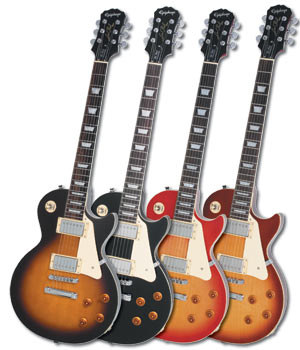
The Epiphone Les Paul Standard Guitar vs The Gibson Les Paul
So how does the Epiphone stack up against its more expensive rival?
On first glance, the Epiphone Les Paul Standard and the Gibson Les Paul Standard look almost identical. So what are the key differences between the two?
The first thing you will notice is that the headstock (not surprisingly) says Epiphone and not Gibson. Big clue there!
Then there's the weight. The Epiphone, while being quite a heavy guitar itself, is not as heavy as the Gibson. Although both guitars have a body of solid mahogany with a maple top, the wood used for the Epiphone is not as dense as that of the Gibson, so it's a little bit lighter.
Another major difference is in the quality of the tuning keys. The Epiphone's are not as well-defined or solid as the Gibson's and as a result, the Epiphone goes out of tune more easily.
And when comparing the two side by side, the Epiphone just doesn't have the same feel as the Gibson in terms of overall quality and finish.
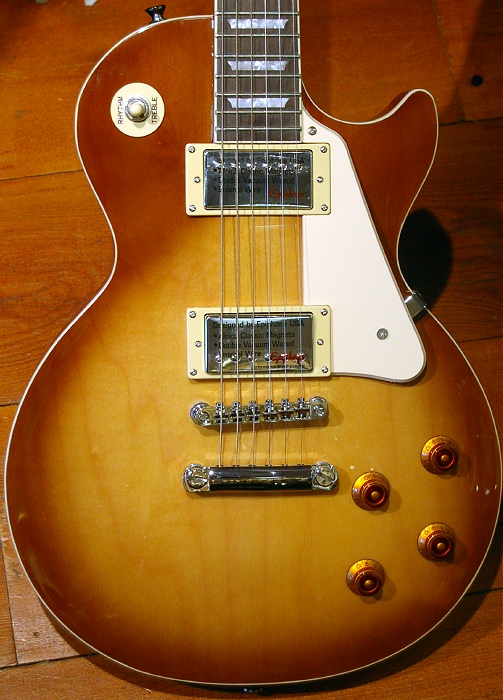
Playbility and Sound
Having said all that, The Epiphone Les Paul Standard is certainly still a great quality guitar and very playable. Tone-wise, it delivers an excellent sound from both pickups, which are pretty hot, if not quite as hot as the Gibson's. Unlike some guitars, you can also get a lot of variation in sound from the tone controls, which can give you anything from a Carlos Santana tone to Eddie Van Halen!
All that mahogany and maple means you can achieve bags of sustain and lots of harmonic overtones too, whichever pickup you are using.
The factory set-up is OK if not brilliant, with good intonation, a nice smooth action and excellent finish on the frets (unlike the cheaper Epiphone models, which can be quite scratchy in places).

Famous Epiphone Players
Epiphone guitars have been played by a number of notable and eminent guitarists. As mentioned earlier in this article, Les Paul himself endorsed Epiphone guitars in the 1930s.
In the 60's, notable players included John Lennon, George Harrison, Kieth Richards and Dave Davies of the Kinks.
More recently, Epiphones have been played and endorsed by Noel Gallagher (Oasis), Johnny Marr (Smiths), Ace Frehley (Kiss), Pete Doherty (Libertines/Babyshambles), Nancy Wilson (Heart), The Edge (U2) and many more.
In conclusion, the Epiphone Les Paul Standard is a great guitar and excellent value for money. If you want a Gibson but can't afford one, the Epiphone is definitely the next best thing!

